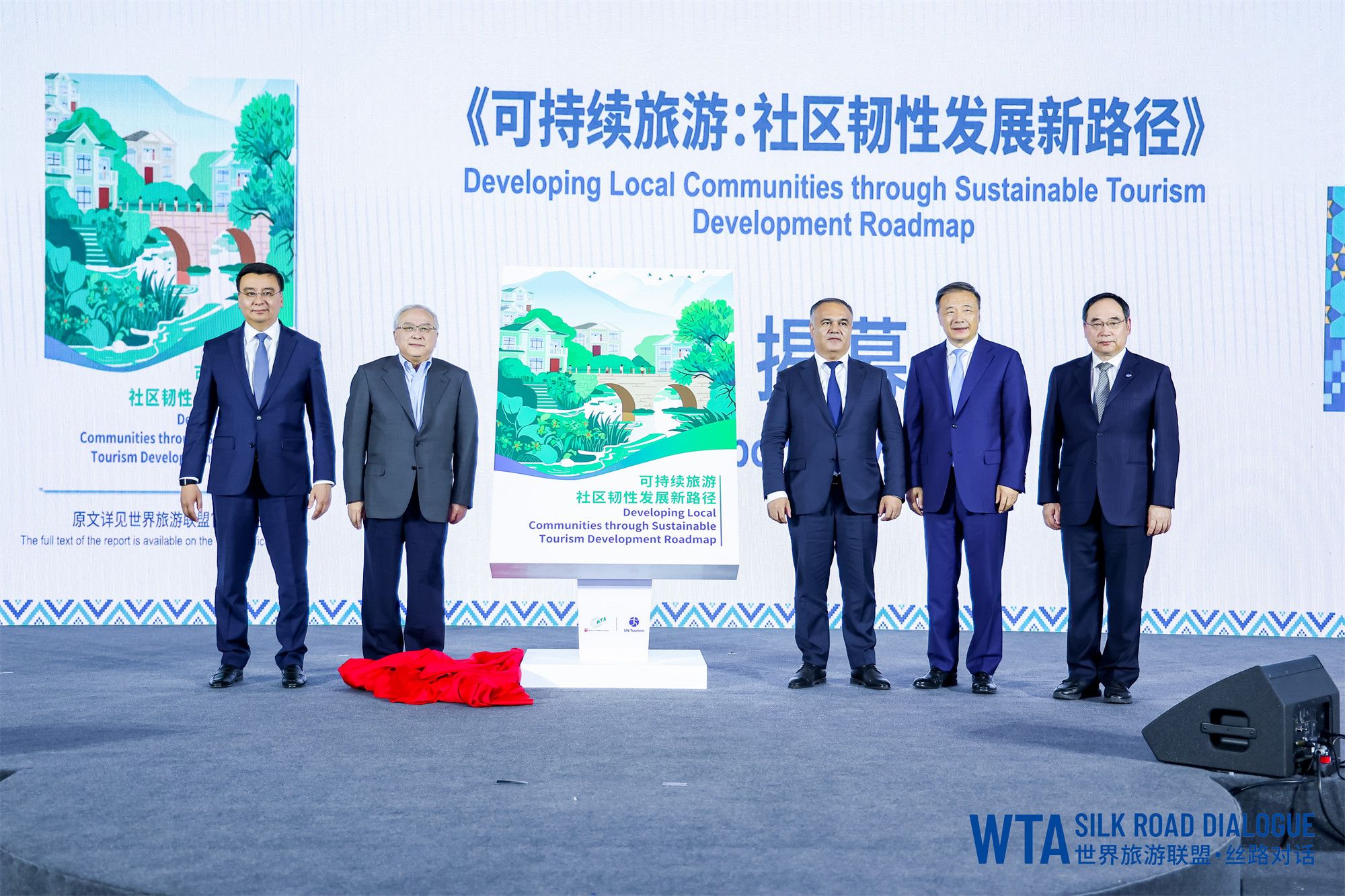2025.07.05

On July 3, during the WTA·Silk Road Dialogue in Samarkand, Uzbekistan, the World Tourism Alliance (WTA) and UN Tourism jointly released the full report titled "Developing Local Communities through Sustainable Tourism Development Roadmap".
The trends in sustainable and community-based tourism highlight the importance of developing tourism through environmentally sustainable, socially inclusive, and economically viable approaches. By focusing on empowerment, heritage preservation, inclusivity, sustainable business models, and partnerships, community tourism ensures alignment with local values, development needs, and long-term visions. This model emphasizes local community participation and empowerment in tourism development and management, which not only enhances residents’ skills, improves infrastructure and public cultural services, and raises incomes but also helps protect cultural and natural heritage. Well-developed community tourism strengthens industry resilience and contributes to achieving the 2030 Agenda for Sustainable Development.
However, from a global perspective, many community tourism projects face survival challenges due to lack of economic viability. While often initiated through collaborations between development agencies and communities to build infrastructure, they struggle with weak self-sustaining capacity, limited ongoing funding, and insufficient management skills, hindering long-term sustainability.
The report establishes a systematic framework for community tourism development by providing a comprehensive roadmap with actionable strategies to help both local communities and tourism stakeholders create attractive, sustainable and competitive tourism products. The roadmap emphasizes a structured approach, starting with the creation of a community vision and objectives that align with sustainable development principles. This includes mapping local resources, establishing a robust management framework, enhancing tourism products, and building human capacity through education and training. Simultaneously, effective marketing strategies and diversified funding sources ensure that tourism revenues are equitably distributed within the community, thereby strengthening long-term economic resilience. Monitoring and evaluation through key performance indicators (KPIs) facilitate progress tracking and continuous improvement. To illustrate these principles in practice, the report examines 10 global case studies including five from China (Xiajiang Village in Hangzhou, Fenghuang Ancient Town in Hunan, Shanghai’s Wukang Road – Anfu Road Block, Chongqing’s Wulong District, and Beijing’s Beigou Village) and five international examples (Malaysia’s Miso Walai Homestay, Colombia’s Orito, India’s Bannabagram, Switzerland’s Rougemont, and Le Morne Village in Mauritius), collectively demonstrating how well-designed community tourism initiatives can generate significant economic, social and environmental benefits while advancing critical sustainable development goals such as poverty reduction, social equity and ecosystem conservation.
For the complete text of "Developing Local Communities through Sustainable Tourism Development Roadmap", visit the official WTA website.